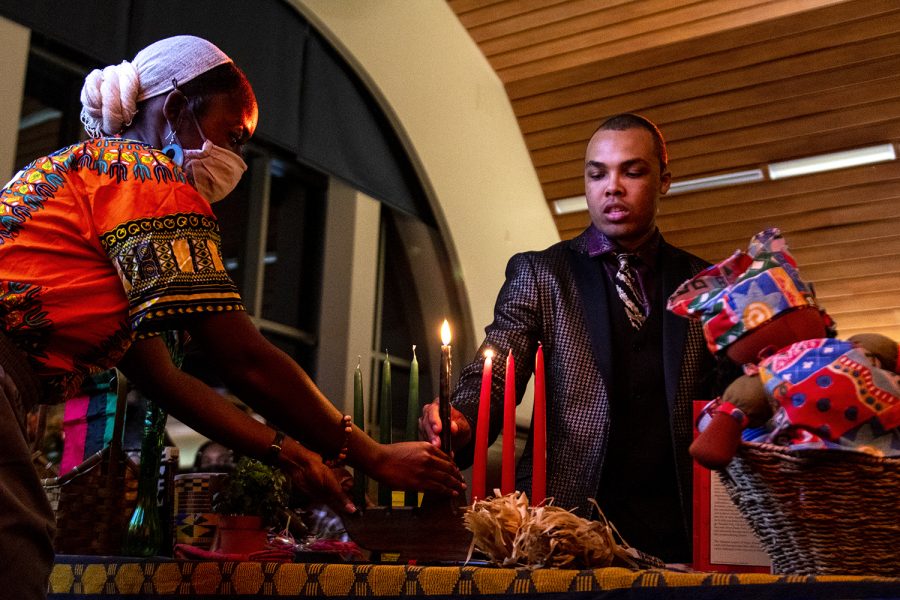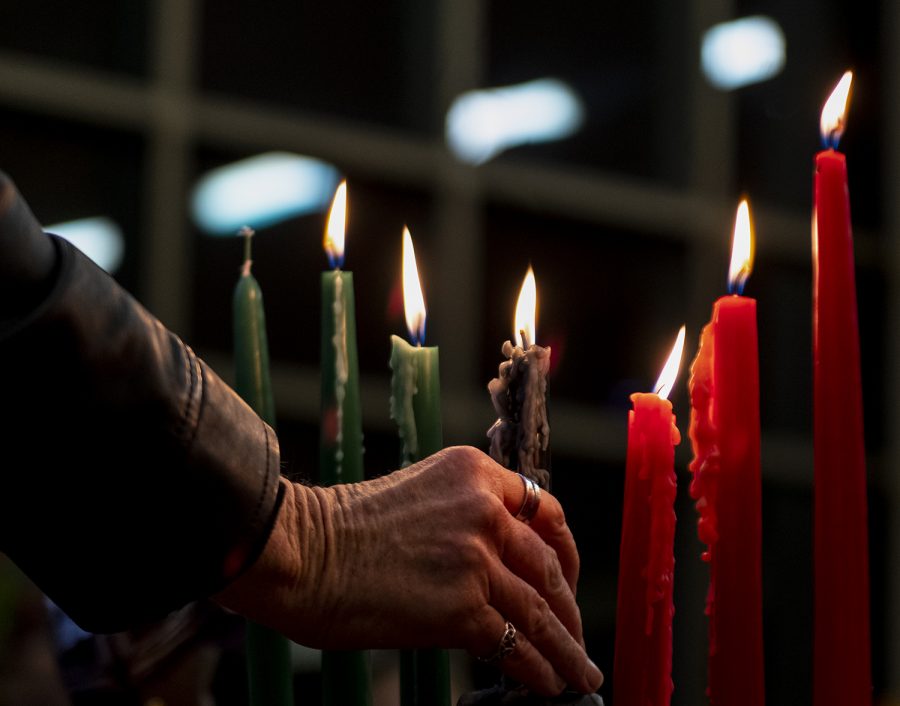African American Studies Program hosts a Kwanzaa Celebration
Noah Gordon from BlaqArt Nouveau lights the second candle before performing a speech during the Kwanzaa celebration on Dec. 2, 2021 in the Downing Student Union. His speech focused on how people of color are tokenized by white people.
December 3, 2021
The African American Studies Program hosted a Kwanzaa celebration in DSU on Thursday, Dec. 2, where multiple speakers came to speak about the symbols and meaning of Kwanzaa.
Saundra Curry Ardrey, who is a part of the African American Studies Program, opened up the celebration by welcoming guests Timothy Caboni, WKU President, and Audra Jennings, History Department Head.
After going over the symbols and meaning of Kwanzaa they introduced the Nguzo Saba, the seven principles of. There is Umoja, Kujichagulia, Ujima, Ujamaa, Nia, Kuumba and Imani. In English, these mean unity, self-determination, collective responsibility, cooperative economics, purpose, creativity and faith, respectively.
Dr. William Ardrey, who is a part of the Inspire Medical Group, and Nia Douglas, a political science major, introduced the principle of Nia.
“I learned the core of who I am from the rest of my family who was able to spend more time in her life,” Douglas said. “This is the importance of black kinship, we know who we are through those who come before us.”
After they were done with their speech for Nia, Cheryl Hopson, who is a part of the English Department and teaches African American Studies, introduced and lit the candle for Kuumba.
“I’m going to read to you a poem from my 2013 collection of poems called Black Notes,” Hopson said. “I wrote the poem for a class in 2003 and it was published in 2013 in this collection.”
The last principle was introduced by Molly Kerby, who is a part of the WKU Diversity, Equity, and Inclusion Committee. She introduced and lit the last candle for Imani.
“What makes it so hard for most of us to have faith is that we can not see into the future,” Kerby said. “It’s that unknown that we are most afraid of. It may not be easy, but faith, especially during difficult times, brings us closer to making our dreams a reality.”
The celebration closed with a short song from Ashanti Groves, a vocal education major, and the African grace and blessing of food. They shared a recipe pamphlet with Kwanzaa recipes and offered a sweet potato coconut soup by the end of the celebration.
News reporter Makaio Smith can be reached [email protected]. Follow her on Twitter @MakaioSmith

























